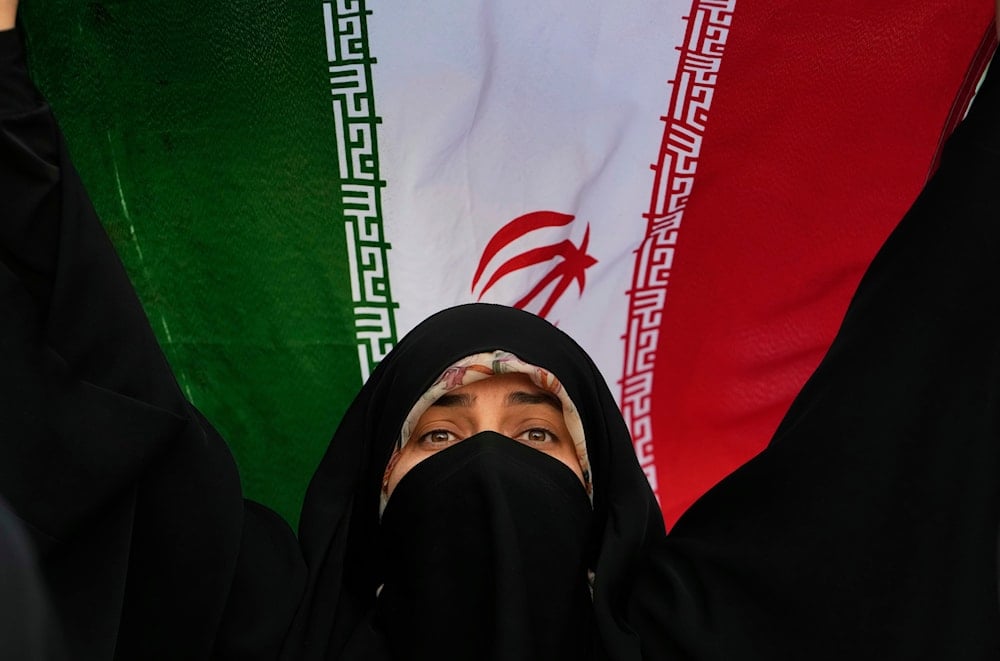Iran says no US talks, Pezeshkian's message to KSA purely bilateral
Iran’s Foreign Ministry denies ongoing talks with the US, dismisses Trump’s claims, and clarifies President Pezeshkian's message to Mohammed bin Salman.
-

An Iranian woman holds up her country's flag in an anti-US and anti-Israeli rally at Enqelab-e-Eslami (Islamic Revolution) square in downtown Tehran, Iran, Tuesday, June 24, 2025 (AP)
There are currently no ongoing talks between Iran and the United States, Iran’s Foreign Ministry confirmed on Wednesday.
"There is no logical reason to negotiate with a party that does not believe talks should be equal, takes pride in its military aggression against Iran, and clearly seeks to impose its dictates on us," the Ministry added in a statement.
It also clarified that Iranian President Masoud Bezhakian’s message to Saudi Crown Prince Mohammed bin Salman was limited to bilateral issues, serving as a note of gratitude for Saudi efforts in providing services to Iranian pilgrims during last year’s Hajj season.
Iran denied reports suggesting that the message was directed to Washington ahead of the Crown Prince’s upcoming US visit.
Meanwhile, US President Donald Trump claimed on Tuesday that Iran “is eager to make a deal” and that “contacts have already begun to open a new negotiation track.”
Iran and the United States have previously held several indirect talks mediated by Oman regarding Iran’s nuclear program. However, these discussions halted following Israeli-American aggression against Iran in June.
Iran-US talks stand at a stalemate
Despite repeated signals from Washington that it is open to re‑engaging with Iran, Tehran insists there are no meaningful talks underway. The Iranian Foreign Ministry has stated that the US has not shown a readiness to talk based on equality and fairness, which Tehran says are prerequisite conditions for any viable dialogue.
One of the major obstacles is the erosion of trust: Iran points to recent military strikes by the US and "Israel" against its infrastructure and nuclear sites as evidence that diplomacy is being pursued under threat rather than in good faith.
Simultaneously, the US and its partners continue to press Iran on constraints over enrichment and inspections, a set of demands Tehran regards as maximalist and non‑negotiable in the current context.
Another layer to the impasse is Iran’s insistence on being treated with dignity and respect, along with assurances that any talks would not be followed by renewed military action. Iranian officials signal willingness to engage only under those terms.
Meanwhile, Washington appears to expect Iran to make initial concessions, rather than construct a platform of symmetric engagement. This mismatch in approach has prevented the emergence of even informal talks, let alone a full negotiation track.

 3 Min Read
3 Min Read










